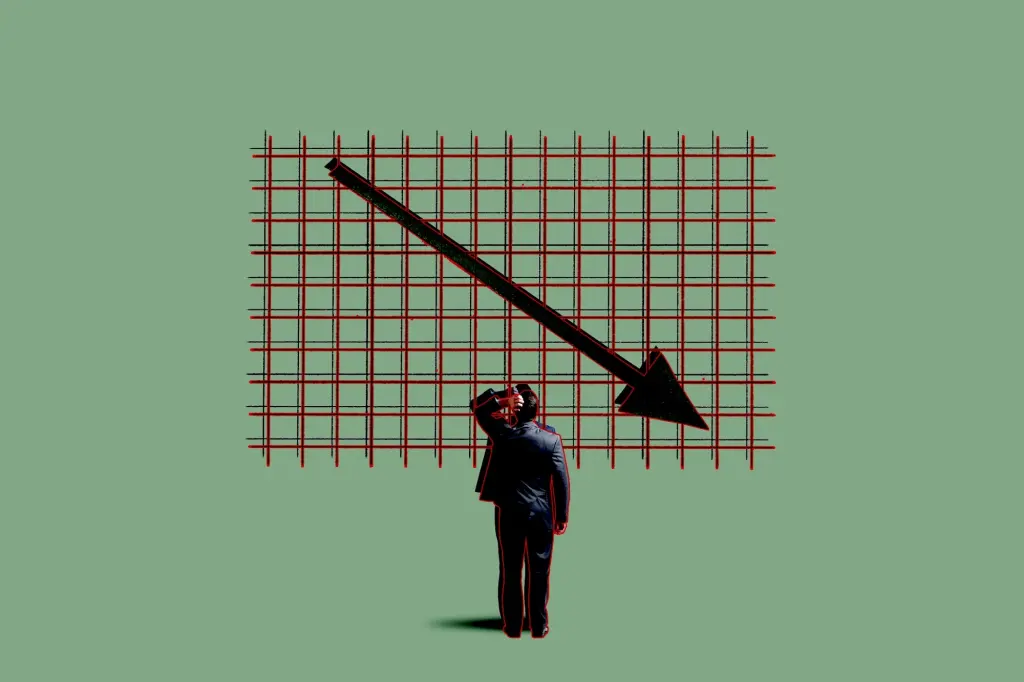Copyright Entrepreneur

When Dr. Jenny Prohaska walks into a room full of police officers who’ve just experienced a critical incident, she’s not there to tell them they’re broken. As a clinical psychologist who works on more than 30 officer-involved shootings a year and consults with more than 50 public safety agencies, she’s learned something every entrepreneur needs to hear: the difference between those who bounce back from trauma and those who don’t has almost nothing to do with how severe their trauma was. It’s all about how they view it. Her lessons learned from handling trauma and failure taught me a lot about how to handle failure in business. Related: This Navy SEAL Commander Says Leaders Aren’t Born or Made — They’re Chosen Based on One Thing The victim mindset is killing your business In the past decade, conducting thousands of pre-hire psychological evaluations, Prohaska noticed a troubling trend: police candidates are increasingly fragile, with lower self-efficacy, poor self-awareness and diminishing drive. Sound familiar? These same characteristics are showing up in the business world, where the victim mentality has become a badge of honor. We’ve gone from a “look how tough I am” mindset to a “here is why I never had a chance” mindset. The problem isn’t that people experience hardship. They always have. It’s that we’re teaching them they won’t recover from it. “If we send that message enough,” Prohaska warns, “people will stop recovering from things.” In just a few generations, “we’ve gone from ‘suck it up, buttercup’ to ‘all your feelings are valid all the time,'” Prohaska explains. For entrepreneurs, this manifests as the founder who can’t move past a failed product launch or the executive who becomes paralyzed after losing a major client. It’s not the failure that does the damage. It’s how they’ve framed it and how that informs their future behavior. Related: The 3 Decision-Making Rules You Should Steal from This SWAT Commander The Three Rs: A framework for processing failure Prohaska’s approach to healthy coping centers on what she calls “The Rule of 3Rs”: Recognize, respect and return. Recognize means acknowledging that something happened and it registered with you emotionally. When your startup runs out of runway or a co-founder betrays your trust, you acknowledge the reality. Respect means pausing to attune to what you’re feeling. You give that emotion its moment, but just a moment. Return means coming back to what you need to do next. Process it, learn from it, then move forward. The alternative? “If you weight train your emotions by constantly stuffing them down,” Prohaska says, “those emotions are going to come out super loud when you don’t expect them to.” The fragile generation problem Over the past five years, the psychological data from new hire evaluations has shifted dramatically. “People had largely high self-efficacy, high self-control, and high self-awareness. All these things were in play. And then about the last five years… I started to notice even my psychological data from new hires was shifting,” she says. Lower confidence. Poor eye contact. Diminished critical thinking. Reduced drive and motivation. These aren’t just problems for police departments. They’re showing up in your hiring pipeline too. The culprit? A society that delivers everything instantaneously, educational systems focused on test scores over critical thinking and a culture that has “exhausted our systems that allow us to have high drive, high motivation.” For business leaders, this means you can’t assume new hires come equipped with the mental frameworks to handle failure, ambiguity and setbacks. You have to teach it. Related: How Setbacks Can Be the Key to Taking Big Steps Forward Anti-Fragility: Beyond resilience There has been a great deal of focus on resilience recently. Resilience is bouncing back to your original form after being knocked off equilibrium. Prohaska has largely abandoned the term “resilience” in favor of “anti-fragility,” and the distinction matters. Anti-fragility is using negative experiences to become better than you were before. “Whatever problem is in front of me, how do I use this to make me a better human?” This isn’t unrealistic positivity. It’s recognizing that the course of your river has changed, and your final destination can actually be better if you’re intentional about it. Think about the entrepreneur whose first business failed spectacularly, but who learned lessons about cash flow management that made their second venture successful. Or the executive who lost their job only to discover they’d been operating from fear rather than purpose. Prohaska calls this “the five-year test”: Five years from now, how do you want this failure to look? Do you want to be the bitter founder still complaining, or someone who used that experience to build something even better? Related: The 10 Unique Soft Skills Employers Desire in New Hires Process vs. Outcome: Where real control lives One of Prohaska’s most powerful insights comes from distinguishing between process and outcome. “When people understand that your process can be solid, but you can’t always control the outcome, people start to cope better,” she says. In tactical operations, you can control your training, fitness, preparation and decision-making. You can’t control what the suspect does or a thousand other variables. When officers focus on their process, ensuring it aligns with their values and expertise, they can handle outcomes they didn’t plan for. The same applies in business. You can control your product quality, team culture and strategic decisions. You cannot control the economy, competitor actions or regulatory changes. Entrepreneurs who focus obsessively on outcomes (the funding round, the revenue target, the exit) set themselves up for trauma when variables beyond their control intervene. Those who focus on process can weather outcomes that don’t go as planned. “If your process is solid and you’ve backed it in line with your values,” Prohaska explains, “the outcome becomes more capable of handling.” This is why some founders can lose everything and start again with optimism, while others become permanently embittered. It’s not about the magnitude of the loss. It’s about where they located their sense of control. Don’t feed the weeds One of Prohaska’s favorite heuristics is simple: “Don’t feed the weeds.” You have weeds in your mental garden: the things you can’t control, the injustices you’ve suffered. You also have plants: the things you can control, the actions you can take, the growth you can pursue. Where you focus your mental energy determines what grows. After a business failure, you can focus on how the market was unfair or how investors didn’t understand your vision. Those might be true, but they’re weeds. Or you can focus on what you learned about product-market fit or what you’ll do differently next time. Those are plants. Both narratives might be accurate. Only one is useful. The bottom line The entrepreneurs who thrive after failure aren’t the ones who experienced less pain. They’re the ones who viewed it through a different lens, one where negative experiences are opportunities for growth, where process matters more than outcome and where mental flexibility allows them to adapt their worldview rather than break against reality. As Prohaska puts it: “Bad incidents make great, strong people.” But only if you frame them correctly. Only if you recognize, respect, and return. Only if you focus on what you can control and refuse to feed the weeds. The question isn’t whether you’ll face failure in business. You will. The question is whether that failure will define you or help build a stronger you. That choice, unlike the failure itself, is entirely within your control.



